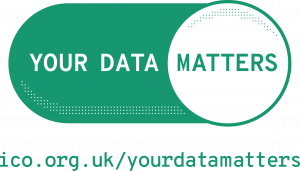Overview
This year marks the 50th anniversary of the introduction of the Health and Safety at Work Act 1974 (HSWA 1974), which remains the umbrella health and safety legislation. It is the basis for all legal health and safety requirements for employers and employees in the UK.
In the past half-century, there have been drastic changes to industry in the UK. A technological boom has occured, dominated by manufacturing and other ‘heavy’ industries. Construction remains prevalent in the UK, but despite huge industry developments, it still represented the majority of workplace fatalities in 2023.
Looking Ahead
The importance of preparing for the unexpected was highlighted during the pandemic. The necessity of being proactive rather than reactive when it comes to safeguarding the future of businesses became clear. It is the hazards that come out of the blue that blindside us, more so than the ones we are aware of.
There will be a greater focus on a holistic approach to health and safety. This encompasses physical, mental, and psychological wellbeing. We can expect to see a continued focus on risk assessment, employee wellbeing, and the integration of technology to enhance safety management. Potential trends are outlined below.

Focus on Occupational Health
Health and Safety Executive (HSE) statistics suggest that employee health has historically taken a backseat role when compared to safety. However, instances of workplace ill health are becoming more common while workplace accidents are on the decline. This is reflected in the marked increase in enforcement action for occupational health breaches.
Mental Health on our Minds
As the workplace evolves, mental health will be a core component of health and safety. Biophilic design within workplaces will increase occupant connectivity to the natural environment through the use of direct and indirect nature. This will drive a holistic approach to wellbeing. Flexible work arrangements will continue to boost work-life balance. More and more businesses will adapt to hybrid working.
Technology-Driven Revolution
In the future, AI-powered systems may be used to monitor worker behavior and environmental conditions in real-time, preventing accidents. Data analysis may be used to anticipate risks, enabling proactive measures. Smart, wearable devices will track workers’ vital signs, exposure levels, and fatigue, supporting early intervention if needed. Virtual reality will enhance training. Robotics and automation will help reduce human exposure to hazardous environments. Visit www.iprotectu.com for easy-to-use modular, configurative and innovative health and safety software solutions. We can help you streamline your training, incident reporting, risk assessment, audit and every other aspect of your safety and compliance needs. Mobile apps are becoming the new go-to for health and safety management. Check out our mobile solutions at https://iprotectu.com/health-and-safety-mobile-apps/.
Climate Change and Sustainability
Sustainable practices will be integrated into health and safety, reducing environmental impact and worker exposure to hazards. ‘Green workplaces’ will become more commonplace. In addition, workplaces will become resilient to extreme weather events and adaptable to climate-related risks.
Workforce Demographics
In future years, accommodations for older workers will become increasingly important in the workplace. Ensuring inclusivity and accessibility for a diverse workforce will be crucial.
The predicted trends point to a future where technology, well-being, and environmental sustainability combine to create remarkable levels of workplace safety.
The next fifty years will undoubtedly bring new challenges and opportunities. The ability to adapt and innovate will be key for business owners.











